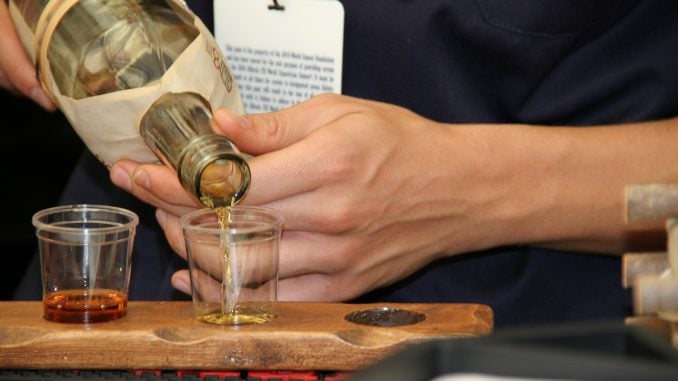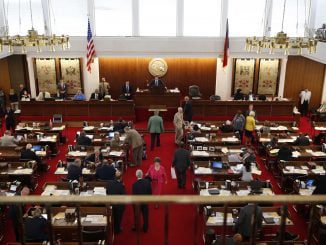
RALEIGH — Senate Bill 290, ABC Regulatory Reform Bill, was sent to Gov. Roy Cooper’s desk July 19 after bipartisan support in the General Assembly. With a vote of 86-28 in the House and 31-10 in the Senate, supporters easily ushered the bill through.
The bill’s most notable change to existing law allows distilleries in the state to sell beer, wine and liquor for consumption on-site. Distilleries were tightly regulated before in a way that breweries and wineries, who often have bars attached, were not.
“The keyword in all this is parity,” Sen. Rick Gunn (R-Alamance), S.B. 290’s primary sponsor, told North State Journal. “We have done a fabulous job with legislation allowing our wine industry and our craft brewing industry to grow and prosper. Unfortunately, we had not done as good a job with our craft distillers, partly because they’re newer, but now we’ve got our hands around the idea that we need to give them some parity to compete in the market.”
In addition to allowing distilleries to serve alcohol and mixed drinks for on-premise consumption, limits on sales for off-premises consumption were also lifted. There had been a cap of five bottles per year per customer, which S.B. 290 eliminated.
The bill also allows ABC stores to have tasting events of liquor inside its stores and allows farmers markets to host tastings of malt beverages. The original bill would have allowed bars and other on-premise alcohol vendors to sell two alcoholic drinks at a time to single patrons, but Minority Leader Darren Jackson (D-Wake) proposed a floor amendment removing the two-drink provision for drinks containing liquor. Jackson’s amendment passed 58-56 leaving patrons with the ability to buy two beer or wine drinks at a time, but only one liquor drink. The bill also allows the sale of alcohol at bingo games.
While the legislation has not yet been signed into law by Cooper, Gunn said he “has heard nothing suggesting the governor doesn’t think it’s good policy” and believes Cooper will sign the bill shortly.
S.B. 290 is only the latest piece of legislation this session affecting North Carolina’s growing alcoholic beverage industry.
Earlier in the session, House Bill 389, which allows alcohol sales at public university athletic stadiums, was passed by a vote of 33-12 in the Senate and 88-25 in the House. It was then signed by Cooper on June 26.
Prior to this legislation, public universities in North Carolina were not able to get permits to sell alcohol at any business on campus. H.B. 389 allows a school’s board of trustees to vote to allow the sale of alcohol at a “stadium, athletic facility, or arena on the campus or property of a public college or university.” Sale of alcohol at other on-campus vendors remains unlawful.
“Every indication we have is that schools, and there are over 50 now, that have allowed alcohol sales have seen a reduction in alcohol-related incidents after selling it in the stadiums,” Gunn said. “It reduced binge drinking and the illegal carrying-in of alcohol.”
House Bill 363, Craft Beer Distribution and Modernization Act, passed with bipartisan support as well with a 104-8 vote in the House and a 38-3 vote in the Senate before being signed by Cooper on May 30. The bill increased the cap on how many barrels of beer North Carolina breweries were allowed to self-distribute before having to use the state’s “three-tier” beer distribution network.
“Increasing the cap from 25,000 barrels to 50,000 will allow some of these brewers to grow and prosper while still keeping our three-tier system that’s been in place together,” Gunn said of H.B. 363.
Another major alcohol reform bill is in the works as well. House Bill 971 seeks to replace “the state’s total monopoly on the sale of liquor with a system of permitting and taxation that’s modeled on the way wine and beer are sold,” according to a press release by primary sponsor Rep. Chuck McGrady (R-Henderson).
H.B. 971 “would maintain the ABC Commission’s role in permitting and enforcement, it leaves distribution and retail sales to the private sector,” the release said.
The bill was debated in the House ABC Committee on Tuesday and has Republican and Democrat sponsors.




